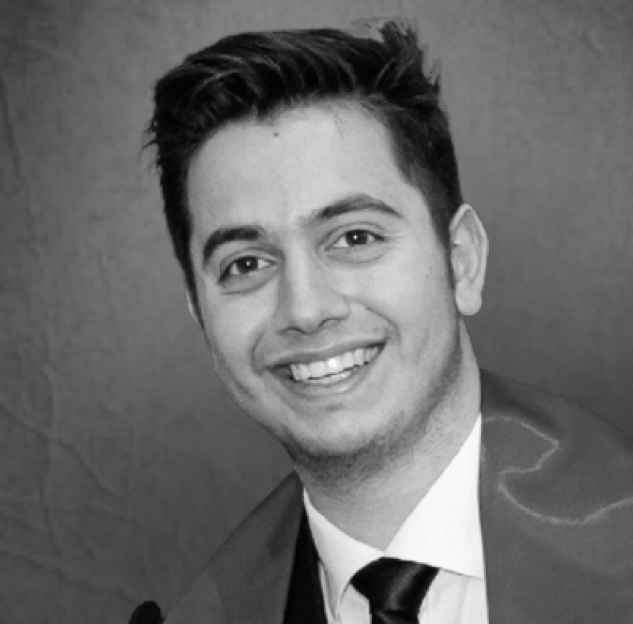Background
The risk of developing a foot ulcer in people with diabetes increases with the presence of loss of protective sensation, biomechanical abnormalities and peripheral vascular disease. In particular when people already had a foot ulcer, the risk of developing another one is high. In this high-risk group, we have incomplete understanding of the pathogenesis of ulcer recurrence. Biomechanical factors are important, but there are gaps in our knowledge concerning the extent and mechanisms through which biomechanical factors contribute to ulceration and amputation.
A potential solution to increase this understanding is by continuous measurements of biomechanical factors in people’s daily life. These include plantar pressure and physical activity patterns. However, such measurement systems are currently unavailable in clinical practice. To advance the field of diabetic foot disease, advanced sensor systems should be developed that allow continuous monitoring of patients in their real-life environments. The aim of this project is to develop and validate the first of its kind system for this population.
Approach
Physical activity and adherence profiling is new to the field of diabetic foot disease and important given the role of activity and treatment adherence in clinical outcomes. The doctoral candidate is developing and testing smart systems to measure cumulative tissue stress, by combining measurements from in-shoe plantar pressure distribution, footwear adherence, and the quality and quantity of physical activity in daily life over prolonged periods of time in high-risk patients. Co-creation methods are being employed, incorporating end-user feedback through two focus groups, individual in-depth assessments, and a multidisciplinary systematic design approach including clinical testing. This process is shaping a new monitoring concept aimed at enabling the early recognition of abnormal outcomes and supporting behavior modification in patients.
Secondments will take place at GSU for essential material and sensor response testing and analysis of prototype monitoring hardware and software; and at SDCC for advanced training in patient behavior to influence sensor development within the project, and pilot testing with SDCC user panel; also involvement in the interdisciplinary team at SDCC with observation in the daily clinic and a focus on the biomechanical and behavioral challenges the person with diabetes have in the daily life.
Our Research Team
Novel (www.novel.de) has been focused on reliable electronics and sensor technology and smart software for biomechanical, medical and industrial application. In 1984 the German Federal Ministry for Research and Technology (BMFT) approved a significant grant to Novel for developing the first dynamic pressure distribution measurement platform system (emed®) for the early recognition of high-pressure points under the neuropathic diabetic foot. Novel presented as a world-first the pedar® system (including software) for the analysis of pressure distribution inside special shoes for people with diabetes. The candidate will learn from, and collaborate with a multidisciplinary team of physicists, engineers and software engineers and another doctoral candidate for DIALECT, who will also focus on the development of a smart system to monitor a different aspect of the foot load (horizontal forces).
German Sport University
With more than 6000 students from 93 countries, the German Sport University Cologne (GSU) is currently an outstanding university location both nationally and internationally. The GSU stands for applied and basic research with a high volume of third-party funding and state-of-the-art as well as international teaching in all social and life science sub-disciplines of sport science. The Doctoral Candidate will be working with the Neuromechanics and Musculoskeletal Biomechanics Group (Prof. Dr. Uwe G. Kersting) at the Institute of Biomechanics and Orthopaedics (Link)
The aim of the group is to understand fundamental mechanisms of positive and negative adaptations to physical loading in sports and everyday life contexts. We join biomechanics and neurophysiologic/motor control research methods to:
• Understand acute and long-term sports injury mechanisms
• Investigate the processes of multi-layered adaptation during training, rehabilitation and return to play
• Assess the influence of equipment, training and conditioning strategies in fundamental, clinical and applied research contexts.
The German Sports University (GSU) will be the PhD awarding institute for the doctoral candidate. This also means that the doctoral candidate will follow the doctoral program of the GSU. For further information see here

Doctoral Candidate
Sergio Catalano
Recruiting organisation: Novel GmbH, Ismaninger Str. 51, 81675 Munich, Germany
Hosts: Dr. Axel Kalpen; Dipl. Ing. Peter Seitz; Dr. Ahmad Dahrouj
Duration: 36 months
Secondments: German Sports University, Cologne, Germany (2 months); Steno Diabetes Center Copenhagen, Denmark (2 months).
Summary: The risk of developing a foot ulcer in people with diabetes increases with the presence of loss of protective sensation, biomechanical abnormalities and peripheral vascular disease. In people at high risk of ulceration, we have incomplete understanding of the pathogenesis of ulcer recurrence. Biomechanical factors are important, but there are gaps in our knowledge concerning the extent and mechanisms through which biomechanical factors contribute to ulceration and amputation. A potential solution to increase this understanding is by continuous measurements of biomechanical factors in people’s daily life. However, such measurement systems are currently unavailable in clinical practice. The aim of this DIALECT project is to develop and validate the first of its kind advanced sensor system for continuous biomechanical monitoring of patients with diabetic foot disease in their real-life environments.

